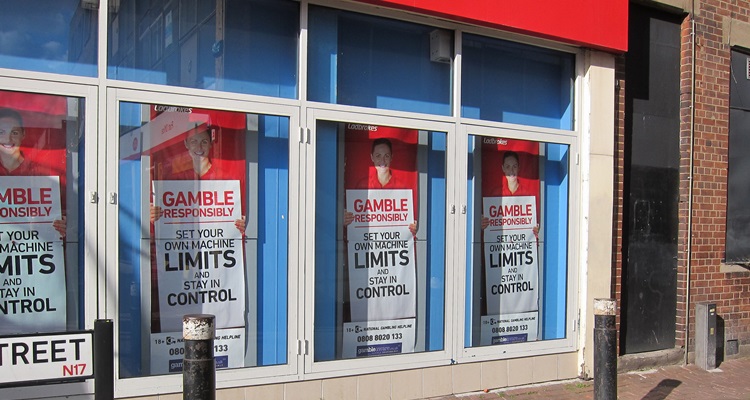An all-time high of £1.8bn lost on fixed-odds betting terminals (FOBTs) by punters in the United Kingdom has the government considering a regulatory crackdown.
Recently released figures by the Gambling Commission, show that in the year ending September 2016, a record £13.8bn was lost by British gamblers. Included in the figure from the industry regulator, was an all-time high £1.82bn lost on controversial FOBTs (also known as B2 machines), according to British daily newspaper, The Guardian.
The latest figures released by the regulator come only weeks before the long-anticipated government review of the industry by the Department for Culture, Media and Sport (DCMS) is due to be published. Announced in October last year by Tracey Crouch, the sport minister, among other things, the review examines the gambling industry, including FOBTs that many have accused of being highly addictive.
Crouch said at the time, that it was important for gambling regulations to “strike the right balance between allowing the industry to contribute to the economy and enable people to bet responsibly whilst ensuring consumers and communities are protected.”
A record £1.7bn was gambled in 2015 on FOBTs, which allow punters to stake £100 every 20 seconds on electronic versions of casino games such as roulette.
The lengthy review has put the spotlight on FOBTs, which have become the focus of campaigners who support tighter regulation. According to the newspaper, Liberal Democrats and Labour Party have both promised to substantially decrease the maximum bet to £2 should they win the general election, which took place on June 8.
According to the report, the Gambling Commission’s figures demonstrate that punters’ losses on the FOBTs, which are the equivalent of almost £5m a day, every day of the year, continue to grow and have increased by £57m to £1.82bn for the year, from the November update to the end of September 2016. Furthermore, since 2009, the amount lost on the gaming machines has increased exponentially by 73 percent, in spite of only a 9 percent increase in the machines to 34,388 over the same period; those numbers indicating that punters are placing higher bets.
According to the figures, an average of £52,887 a year, about two times the national average, was brought in by each FOBT, which were introduced to betting shops in 2002.
Having campaigned for a reduction in FOBT stakes, Carolyn Harris, who was re-elected as MP for Swansea East in the General Election 2017, called the scale of losses “obscene.” Harris said, “Losses on FOBTs are spiralling out of control. Every year more and more is lost on these addictive machines, so the next government must act to reduce the maximum stake to £2 a spin,” as cited by The Guardian.
Defending the FOBTs are bookmakers, who according to the report, derive more than 50 percent of their revenue from the machines. They warn that on the line is billions in taxes and thousands of jobs should the machines be restricted.
Proponents of the restrictions, the Campaign for Fairer Gambling, however, says the FOBTs are a net drain on the UK economy and that “More jobs would be created if money lost on FOBTs was spent elsewhere,” said a spokesperson.
The Association of British Bookmakers reportedly said: “The increase in revenue from gaming machines in betting shops of 3% [compared with the last report] is in line with the average growth in revenue across the whole of the gambling industry (3%) and growth in the economy as a whole.”



